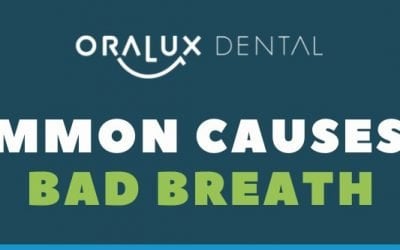Fluoride

Tooth decay is usually easily avoided these days, thanks in large part to the use of fluoride, a naturally occurring mineral which plays a critical role in strengthening the ability of your teeth to fight off the effects of decay.
All-natural and effective
Fluoride is not an artificial compound or some sort of medication, but rather a naturally-occurring mineral that’s found in rocks and soil, vegetables and grains, as well as in fresh and saltwater. The fluoride found in the environment, however, is not sufficient on its own to protect your teeth, which is why small supplemental amounts are added to the water supply, as well as into toothpaste, gels and other dental products.
Protecting your teeth
Fluoride is crucial to combatting tooth decay. It gives your teeth extra strength when they’re developing so they’re better able to resist the bacterial acid that causes tooth decay and it slows the growth of bacteria in your mouth known as plaque which leads to tooth decay.
While brushing with fluoridated toothpaste is the most effective way to receive fluoride, taking it through tap water has a considerable effect on the ability of your teeth to fight decay. If you need a fluoride top-up, and most people in fluoridated areas won’t, your dentist can apply high-fluoride products such as gels, foams and varnishes to your teeth.
Your dentist may also suggest the use of fluoride supplements, particularly in areas where water fluoridation isn’t practised.
It’s in the water
Fluoride has been added to water supplies in many Australian towns and cities since the mid-1960s and is often hailed as one of the great public health achievements of the last century. It has proven so effective at reducing tooth decay among children and adults that health and dental organisations around the world such as the Centers for Disease Control, and the Australian Medical Association strongly back its use.
It’s good for you
Fluoride consumption has been scientifically-proven to be of extensive benefit to consumers, with negligible adverse reactions. While “dental fluorosis”, small flecks which appear on tooth enamel, can result from ingesting too much fluoride, it’s rarely visible and does not damage teeth and usually only results when young children are exposed to large amounts of adult strength fluoride toothpaste.
Overall, the benefits of fluoride are considerable. It remains the most cost-effective, fair and naturally-occurring way to keep your teeth healthy. And remember, to make the most of the advantages it affords you, you need to brush twice a day, maintain a healthy, balanced diet, and visit your friendly dentist on a regular basis.
Source: https://www.ada.org.au/Your-Dental-Health/Adults-31-64/Fluoride
Services We Mentioned
Related Articles
Common Causes of Bad Breath
Bad breath is usually caused by poor dental habits, infections, the foods you eat and unhealthy habits such as…
How to Eat Your Daily Vitamins and Minerals
Though the morning chewable may be tasty, to get the recommended amount of vitamins and minerals every day…










